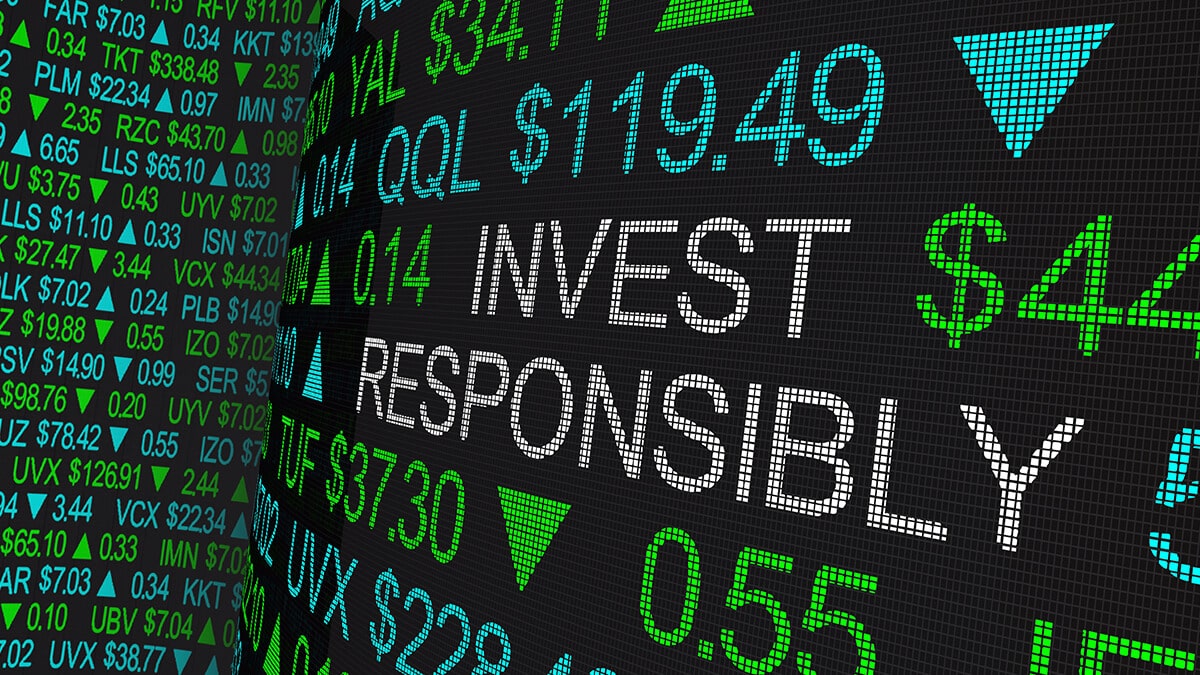In this guide
If you’re one of the millions of Australians who expect their money to be invested responsibly, you’re probably wondering how genuine your super fund’s claims about sustainability and ethics are, and how much is marketing hype.
The good news is that super funds are required to disclose detailed information about their investment holdings and ASIC, the regulator concerned with financial sector misconduct, has prioritised pursuing providers who make misleading claims.
What is greenwashing?
When we’re talking about investments, greenwashing can be defined as the practice of misrepresenting the extent to which a financial product or investment strategy is environmentally friendly, sustainable or ethical.
Increasing demand for responsible and ethical investments partially explains why greenwashing has become a problem.
Research by the Responsible Investment Association Australasia (RIAA) conducted in 2022 found that 83% of people expect the money in their bank account and super to be invested responsibly. In their haste to get a product to market that meets this demand, some providers have not taken steps to ensure that disclosure of their investment process and holdings is adequate.
Greenwashing can be due to oversights rather than intentionally misleading, but regardless of its origin it is harmful to consumers. The impact includes not only disappointment, but also potential impact to investment returns. During market upheaval in the wake of the COVID-19 crisis, organisations with strong sustainability credentials frequently outperformed conventional funds, demonstrating their resistance to shocks.
ASIC action against super funds
Pursuing greenwashing is one of ASIC’s 2023 enforcement priorities, and recent modifications to the law have made it simpler for them to bring court action against super trustee conduct.
In February 2023, ASIC launched its first court action against alleged greenwashing. The proceedings in the Federal Court accuse Mercer Super of making misleading statements about the sustainable nature and characteristics of some of its super investment options.
The action covers seven ‘Sustainable Plus’ investment options offered by the Mercer Super Trust. Statements on Mercer’s website marketed these options as suitable for members who are ‘deeply committed to sustainability’. Mercer stated that companies involved in carbon-intensive fossil fuels, alcohol production and gambling were excluded from the portfolio.
ASIC alleges that these types of companies were not excluded, and assets of the Sustainable Plus options included:
- 15 companies involved in the extraction or sale of carbon-intensive fossil fuels
- 15 companies involved in the production of alcohol
- 19 companies involved in gambling.
The court action centres on whether Mercer made false and misleading statements and engaged in conduct that could mislead the public.
ASIC has also issued infringement notices to several super trustees in relation to greenwashing recently.
In December 2022, Diversa Trustees (as the trustee of Cruelty Free Super) paid an infringement notice for statements on their website that ASIC felt overstated the impact of their exclusionary investment screens.
ASIC contended that the investment screens were limited and would permit investment in companies involved in activities that the website disclosure stated would be excluded.
In April 2023, Future Super was also fined. ASIC was concerned that a statement made on Future Super’s Facebook page in May 2019 which included the words ‘Naysayers don’t join together and move nearly $400 million out of fossil fuels’ was false or misleading.
At the time, the fund’s total assets were approximately $400 million. ASIC contended that the statement implied all the fund’s $400 million in assets had previously been invested in fossil fuels, which is not accurate. Only a portion of the funds would have been invested in fossil fuel industries with the super funds that previously held the assets.
How to check your fund’s investments
If you can’t be certain your fund’s claims about the types of companies that are included in their portfolio are accurate, how can you ensure you’ve chosen an option that genuinely meets your responsible investment goals?
Super funds are now required to publish a detailed list of their investments on their website and update the information every six months. This is a measure called ‘portfolio holdings disclosure’. Searching your fund’s website for ‘portfolio holdings’ should allow you to view this information and download a spreadsheet containing all the detail. If you have trouble, get in touch with your fund for help locating it.
Ratings and certification
Your fund’s disclosure about its holdings is valuable, but difficult to digest on your own. There are a few reliable ratings and certification agencies that have done the work for you to investigate funds’ responsible investment claims.
The Responsible Investment Association Australia (RIAA) manages a website called Responsible Returns. Here, you can access information on investment options that have been certified by the RIAA.
You can search for products that include themes of interest to you and avoid areas you object to, or search for your current fund to see if it is certified and check the RIAA’s description of how it applies responsible investment principles.
The Ethical Advisers’ Co-op also rates sustainable super investments and managed funds. You can select your fund to view a comprehensive document that explains any features of the investments that may concern ethical investors and details of the screens used so you can be fully informed.





Leave a comment
You must be a SuperGuide member and logged in to add a comment or question.